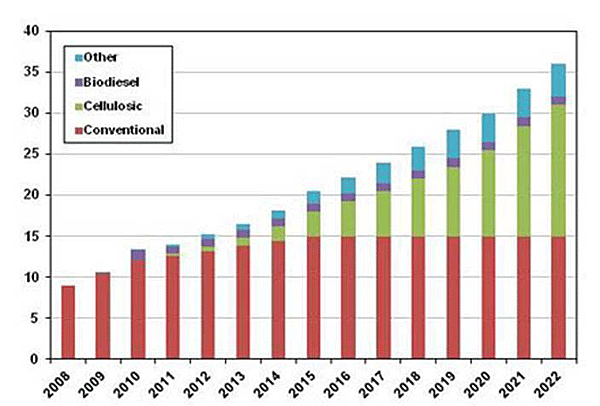

"Because the biofuels industry uses many of the same sources of fiber as conventional forest products, the cost of that fiber could increase. This could create a threat to pulp and paper companies who must compete with biofuels companies that are subsidized through tax incentives in Europe and North America," said Seth Walker, associate economist, Bioenergy at RISI.
"At the same time, this also creates an opportunity for product development and diversification for pulp and paper producers, who have well established wood fiber supply chains. Forest and timber plantation landowners who can supply this emerging market also stand to benefit," Walker continued.
The figure shows U.S. Renewable Fuel Standard volume mandates in billions of gallons through 2022.
Outlook for Wood-Based Biofuels provides an overview of emerging wood-to-liquid biofuels technologies. It is designed to help readers understand the emerging wood-based biofuels market and the policy that is driving it in the US, Canada, and the European Union.
TAPPI
http://www.tappi.org/